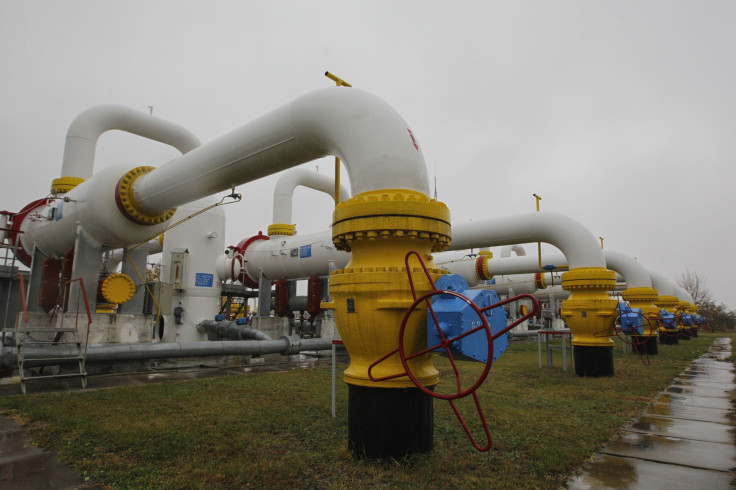Russian Gas Deal Failure Leaves Ukraine Facing Huge Shortfall Going Into Winter Months

Russia shut off natural gas supplies to Ukraine on Wednesday after talks in Vienna to extend a deal between the two rival countries broke down over a disagreement on price. While Ukraine can turn to its European neighbors for assistance during the rest of the summer and fall, it has no supplier with enough gas for the harsh winter months, and will likely have to pay a higher rate per cubic feet, which will place added pressure on its already troubled economy.
“Ukraine’s economy is certainly not in a healthy position right now, but it needs to manage its relationship with Russia carefully, bearing in mind that Moscow’s strategy past 2019 is to stop Ukraine becoming closer to Europe and to deny it the financial windfalls of such a relationship,” said Ariel Cohen, director at the Center for Energy at the Institute for Analysis of Global Security and a senior fellow at the Atlantic Council. “But in some ways this is also good for Ukraine because they need to make relationships with alternative suppliers in Europe if they are to escape the Russian sphere of control.”
Talks between Russia, the European Union and Ukraine broke down after Kiev, which had previously received discounted gas from Russia, asked for an even larger reduction in price through to March 2016. Until today, Ukraine paid Russia $247 per thousand cubic meters (TCM) of gas, a $40 discount on the normal market price in Western Europe. Ukraine wanted a deal in the region of $201 TCM for the duration of summer and winter, but Russia refused based on the price and it’s unwillingness to make deals that covered multiple quarters.
The difference for Ukraine, which is fighting a financially sapping war in its eastern territory of Donbas with Russian-backed rebels, is substantial.
The remaining seven billion cubic feet it needed to make it through the summer would have cost Ukraine around $1.73 billion under its most recent deal with Russia, which Moscow had agreed to do for the summer. However, Ukraine wanted a longer deal that would have provided that remaining summer need and then an additional 19 billion cubic meters. Russia expected to receive around $7.2 billion for the deal on its terms, roughly $2 billion more than what Ukraine wanted to pay.
“The discount on gas for Ukraine is in line with the prices that are in place in countries and territories around Ukraine. The Ukrainian side said today that it counted on a larger discount of around 30 percent,” Russia’s Energy Minister Alexander Novak said on Rossiya-24 television Tuesday evening. “In our opinion this is a completely groundless expectation.”
The failure to come to a deal comes against the backdrop of deeply strained relations between the two countries. Russia’s annexation of Crimea in March 2014 and its continued involvement in the 15-month long east Ukraine war has set Kiev on a path to deeper relations with Europe, a move that Moscow has been strongly against.
Ukraine will likely turn to neighboring Poland, Slovakia and Hungary on its western border to make up the seven billion cubic meter difference between now and October. Oddly, all three countries also receive their gas from Russia, but are able to perform what’s known as a reverse flow of gas to Ukraine through pre-existing pipelines between the countries. However, Cohen said he would be surprised if Hungary, which is attempting to build closer ties with Russia will actually supply any gas to Ukraine.
While all three receive the same discount as Ukraine and will be subject to those same winter increases, it’s not yet clear how much Kiev will have to pay them or if those countries would be willing to take a loss to help meet Ukraine’s tightening budget.
Either way, Ukraine’s insistence that it receive a substantial discount from Russia in order to make a deal underlines its current and troubled economic struggle. While the country had recovered after the global economic crash between 2008 and 2009, the war in Donbas has seen the economy shrink by 6.8 percent in 2014, and is expected to see a further decline of 9 percent by the end of this year. Loan payment obligations on a $17.5 billion bailout loan from the IMF also weigh heavily on its monthly payments to creditors and energy suppliers.
The collapse in the deal with Russia leaves Ukraine with a serious problem as it prepares for winter, when temperatures can dip to as low as four degrees Fahrenheit. As things stand, Poland and Slovakia would not be able to supply anywhere near the 19 billion cubic meters that Kiev needs. An EU source, speaking to Politico on Wednesday, said that only Russia would be in a position to provide that level of natural gas, or Ukraine could instead suffer gas shortages throughout the country.
If Ukraine was willing to go back to the negotiating table with Russia, the next opportunity would not be until the fall, according to Alexander Kornilov, a Moscow-based energy analyst who spoke to Bloomberg on Wednesday.
“We expect Ukraine to continue following its strategy, assuming more reverse gas purchases from neighboring Poland and Slovakia, rather than directly purchasing Russian gas from Russia,” he said.
© Copyright IBTimes 2024. All rights reserved.





















